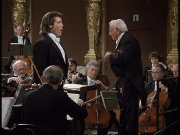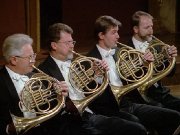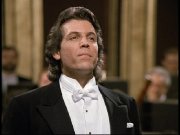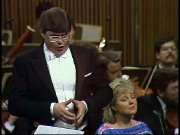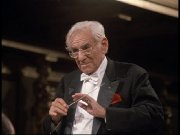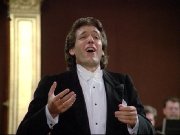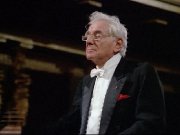Changes made to Mahler: Lieder (Bernstein)
Revision 2
Created on Monday, 25th January 2010, 08:42
Change Submitted by Alan Titherington
List of Changes:
-
Change #1 - annoy. W
nd with the
Revision 1
Created on Monday, 25th January 2010, 00:05
Change Submitted by Alan Titherington
List of Changes:
-
Change #1 - eant
- Change #2 - hout any Mahler whatsoever. <newline> <newline>Ber
-
Change #3 - tions ch
naanged rath -
Change #4 - the brie
df extract - Change #5 - ing. <newline> <newline>[url="http://www.myreviewer.com/default.asp?a=0000125155"][imgmc=0000218524.jpg][/url] <newline> <newline>This is
- Change #6 - detailed already, whethe
-
Change #7 - -downs,
whichand are all are des - Change #8 - elf. <newline> <newline>[url="http://www.myreviewer.com/default.asp?a=0000125154"][imgmc=0000218523.jpg][/url] <newline> <newline>Having s
-
Change #9 -
<newline>
<newline>
Either way, his lyrical voice, and skill in producing as much dynamic effect as the whole orchestra behind him, make these performances rather special, and the final song of Kindertotenlieder is, as should be expected considering Mahler’s subsequent experiences with the death of his daughter at the age of four, suitably moving. <newline> <newline>The most infuriating performance, yet probably most satisfying overall, is of the Wunderhorn songs. <newline> <newline>Here, Bernstein is conducting the Israel Philharmonic, an orchestra which he first conducted in 1947, 11 years after its creation, and which was originally formed to employ Jewish musicians who were being dismissed from European orchestras of the time. <newline> <newline>The infuriating nature of the recording is threefold. <newline> <newline>1) The quality of the orchestral playing is just not as good as it should be, yet still grabs your attention as there’s no doubt about the commitment. <newline> <newline>2) The audience surrounds the orchestra, and so the amount of fidgeting and extraneous movement in the choir stalls when the camera is focussing on the soloists is increadibly off-putting. <newline> <newline>3) I have no idea who Walton Groenroos is, or indeed was. <newline> <newline>Groenroos is described in the DVD booklet as “the comparatively short-lived Finnish baritone”. Not enough information for this reviewer, yet any form of Googling or checking with friends came up with very little else. It seems this is/was the biggest gig of his life, but with not even a Wikipedia article to his name, I’m still at a loss. <newline> <newline>Admittedly, his style of singing isn’t the most persuasive I’ve come across. He gives little idea of communicating a story to an audience, and almost every forte is sung in such a declamatory way that the pitches which are meant to come out are just turned into shouts. <newline> <newline>How different then is his partner, in the shape of Lucia Popp. Her voice has been engrained in my memory since I first heard her sing some Mozart excerpts on vinyl , and this was the first time I have actually seen her perform. The difference between her delivery of the Wunderhorn lieder and that of Groenroos is staggering. There is immediate connection with the audience, a desperate attempt at trying to communicate with her on-stage partner when a duet is taking place (rarely reciprocated), and there’s even more of a spring in the conductor’s step which reminds you of his earlier years when music-making was probably a lot more fun and less planned out to the minutest detail.[url="http://www.myreviewer.com/default.asp?a=0000125147"][imgmc=0000218516.jpg][/url] <newline> <newline>Either way, his lyrical voice, and skill in producing as much dynamic effect as the whole orchestra behind him, make these performances rather special, and the final song of [i]Kindertotenlieder[/i] is, as should be expected considering Mahler’s subsequent experiences with the death of his daughter at the age of four, suitably moving. <newline> <newline>The most infuriating performance, yet probably most satisfying overall, is of the [i]Wunderhorn[/i] songs. <newline> <newline>Here, Bernstein is conducting the Israel Philharmonic, an orchestra which he first conducted in 1947, 11 years after its creation, and which was originally formed to employ Jewish musicians who were being dismissed from European orchestras of the time. <newline> <newline>The infuriating nature of the recording is threefold. <newline> <newline>1) The quality of the orchestral playing is just not as good as it should be, yet still grabs your attention as there’s no doubt about the commitment. <newline> <newline>2) The audience surrounds the orchestra, and so the amount of fidgeting and extraneous movement in the choir stalls when the camera is focussing on the soloists is increadibly off-putting. <newline> <newline>3) I have no idea who Walton Groenroos is, or indeed was. <newline> <newline>[url="http://www.myreviewer.com/default.asp?a=0000125150"][imgmc=0000218519.jpg][/url] <newline> <newline>Groenroos is described in the DVD booklet as[i] “the comparatively short-lived Finnish baritone”[/i]. Not enough information for this reviewer, yet any form of Googling or checking with friends came up with very little else. It seems this is/was the biggest gig of his life, but with not even a Wikipedia article to his name, I’m still at a loss. <newline> <newline>Admittedly, his style of singing isn’t the most persuasive I’ve come across. He gives little idea of communicating a story to an audience, and almost every [i]forte[/i] is sung in such a declamatory way that the pitches which are meant to come out are just turned into shouts. <newline> <newline>How different then is his partner, in the shape of Lucia Popp. Her voice has been engrained in my memory since I first heard her sing some Mozart excerpts on vinyl , and this was the first time I have actually seen her perform. The difference between her delivery of the [i]Wunderhorn[/i] lieder and that of Groenroos is staggering. There is immediate connection with the audience, a desperate attempt at trying to communicate with her on-stage partner when a duet is taking place (rarely reciprocated), and there’s even more of a spring in the conductor’s step which reminds you of his earlier years when music-making was probably a lot more fun and less planned out to the minutest detail. <newline> <newline>[url="http://www.myreviewer.com/default.asp?a=0000125152"][imgmc=0000218521.jpg][/url] <newline> <newline>
Initial Version
Created on Sunday, 24th January 2010, 23:58
First Submitted by Alan Titherington

